Weight loss can be done through many modalities like calorie deficit, exercise, or both. One meal a day (OMAD) is one way to drive energy restriction without necessarily spending time counting calories or weighing food portions.
In this series of articles, I will answer the most important questions about losing weight with OMAD and most importantly, why is OMAD not working for me.

In general, you’re not losing weight on OMAD because you’re overeating without even realizing it. You’re too early in the process and you don’t see the results yet. Or you have unrealistic expectations for the amount of weight that you can lose.
But there is so much more to understand about this question. Apart from reading each of the sections below that answer the most common questions, please be aware that each paragraph offers a more in-depth guide on how to troubleshoot those problems.
OMAD Not Working
In general, the reason why OMAD is not working is that people eat more than they thought they are. Stress, distractions, and unwanted emotions can trigger overeating. And one day a week of impulsive eating can hold you back with your results.
According to a meta analysis published in The American Journal of Clinical Nutrition, more than half of the lost weight is usually regained after the first two years, and 80% within the first five years.
(See below.)
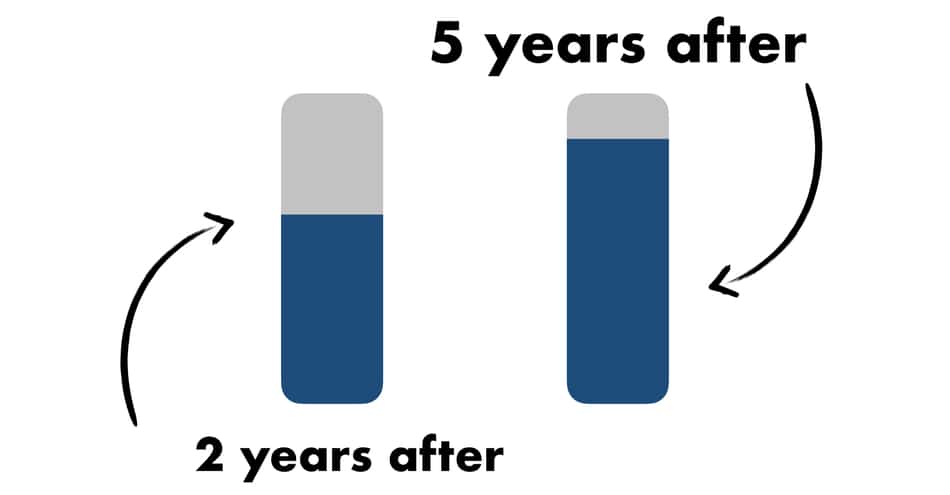
This happens because people eat food not only to satisfy their physical hunger. They eat food as a way to feel good and relieve stress.
This guide will help you learn more about:
- Is OMAD for everyone and who should avoid it
- Why it’s not working and what you can do about it
- How long it takes to work and what you should expect
- Can you gain weight on OMAD and what to do when it happens
- Overeating on OMAD and what to do about it
- What happens after you finish with OMAD and
- Science-based methods to help you maintain your results
The stuff that I’m gonna share with you can be done by anyone, anywhere, and it’s free. It’s literally a rip-off from all the people that I had the privilege to work and learn from.
And now I want to share that with you.
Does OMAD Work For Everyone?
Generally, one meal a day isn’t for everyone, especially for people who need to be under medical supervision or within strict dietary guidelines.
People with type 1 diabetes, seniors, pregnant women, and people who need to take medications together with their meals should look for alternative ways.
The good news is that there are several other methods to reduce food intake, without doing one meal a day.
Evenly effective are alternative day fast, time-restrictive feeding, and 5:2 intermittent fasting. They all can be used, modified, and personalized to fit into each goal and health condition.
I’ve written a simple guide that includes scientific references for people with type 1 diabetes, seniors, teenagers, and pregnant woman that shows what fasting could work best.
Why is OMAD not working for me?
It can feel really discouraging when we put so much work and hope into something that doesn’t seem to work.
But the good news is that there are only a handful of reasons why OMAD is not working. And all of those reasons are in your control
- We eat too much food without even realizing it. It happens all the time. Eating mindlessly, surrounded by distractions and tempting foods that shouldn’t be around.
- We drink too much alcohol. Alcohol is bad news for weight loss.
- We have too high expectations. We see people lose a lot of weight in the first week. And after comparing ourselves to others, we feel like something is not right.
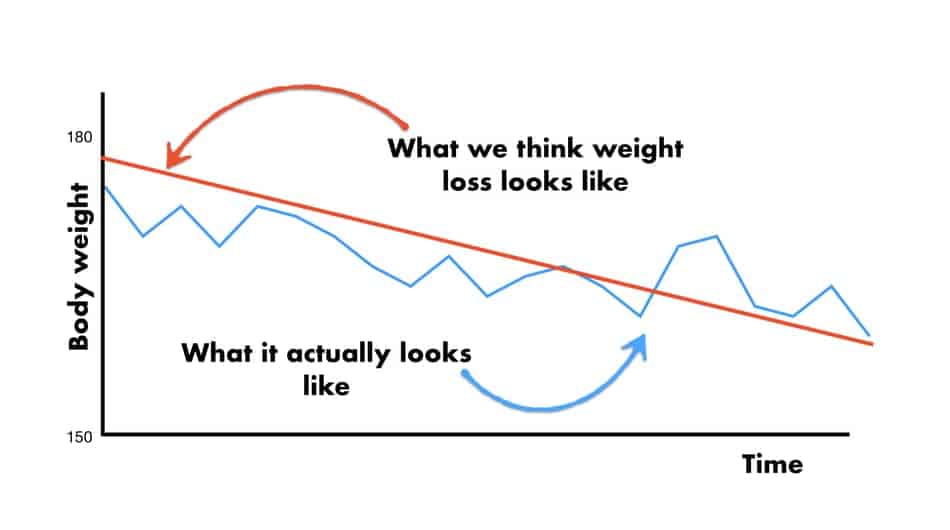
Luckily, I’ve written a full article about all those reasons in detail and how to overcome this problem. So you can dive into the meat and bones of why OMAD is not working.
How long does OMAD take to work?
In general, one meal a day starts to work within the first 8-12 hours after your last meal. Once the body enters ketosis, it already switches from using glucose to fat as an energy fuel.
However, to see the visible results it may take a couple of weeks.
The period from you starting doing OMAD to seeing your first results I call ghost town. It’s because there is like nothing is happening, despite you putting in the work.
So you just need to be patient for a few days.
There are several ways to stay patient while doing OMAD:
- Staying busy during the day. It will help you not to think about food so much.
- Focus on the body cues and the emotions that you feel around the food.
- Journal your journey. It will help you to stay focused.
- Stay hydrated. With less food, your body will need more electrolytes.
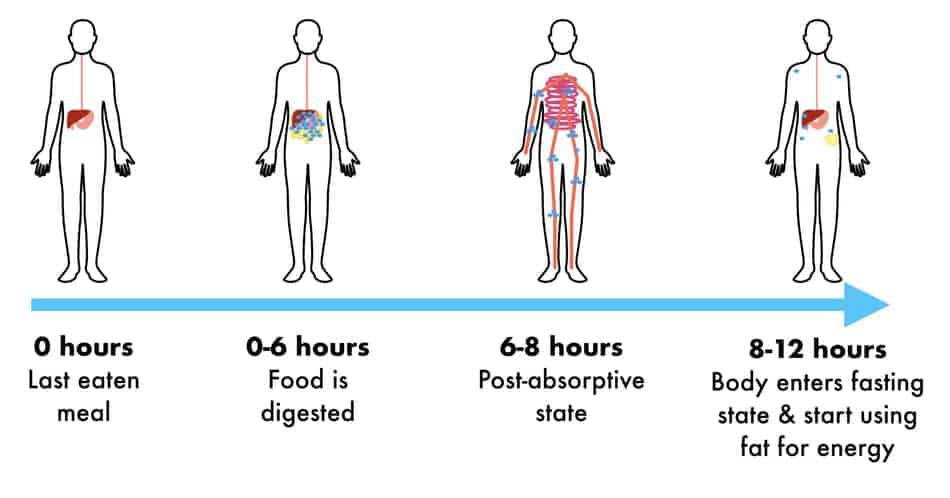
I’d like to show you my full breakdown of how long it takes to see results on OMAD and I hope it will clarify more questions that you may have.
Can You Gain Weight On OMAD?
When you gain weight on OMAD it is almost certain that you’ve overeaten. So now, instead of feeling bad about it, your job is to figure out what trigger made you eat more. I call those moments “blind spots”.
This is important because once you can identify your blind spot, next time you will be ready. Some things that trigger us include:
- Social environment
- Stress level and allostatic load
- Hormonal differences
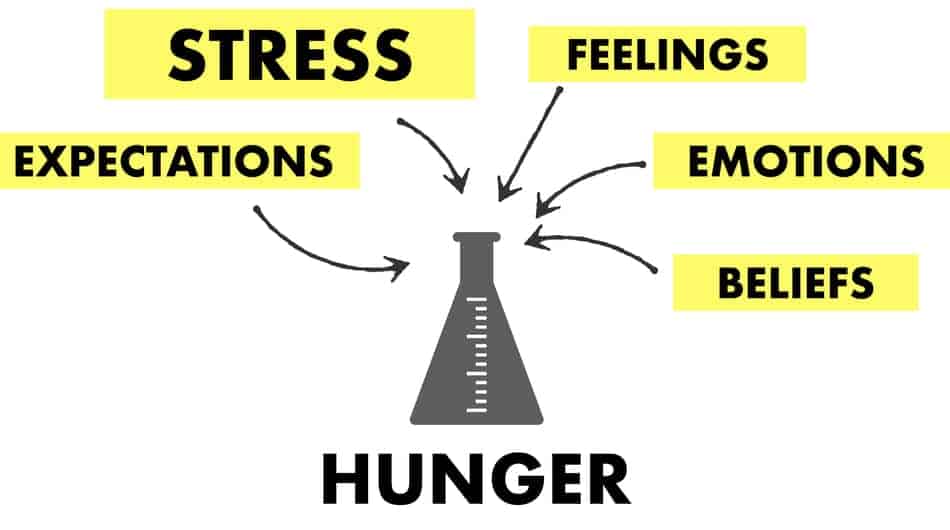
But you can start by improving your self-awareness. To help shed the light on what needs to be done, I’ve done the full guide on that topic.
Overeating on OMAD
In general, OMAD can help with overeating because it allows to only eat once a day, which reduces gastric capacity due to a lower volume of food.
After a couple of weeks, the body adapts to new energy intake and stays full with less food.
Is OMAD good for binge eaters? OMAD is good for binge eaters because it helps to restrain from food.
With long-term intermittent fasting, the body accustoms to new ways of eating, reduces food cravings, lowers the appetite, and increases satiety with lower food volume.
What happens if you overeat on OMAD? Generally, when you overeat on OMAD your body will get tired and sleepy because of excess food consumption.
Eating too much food only once a day may lead to a temporary increase in glucose and insulin levels, which can cause tiredness and sleepiness.
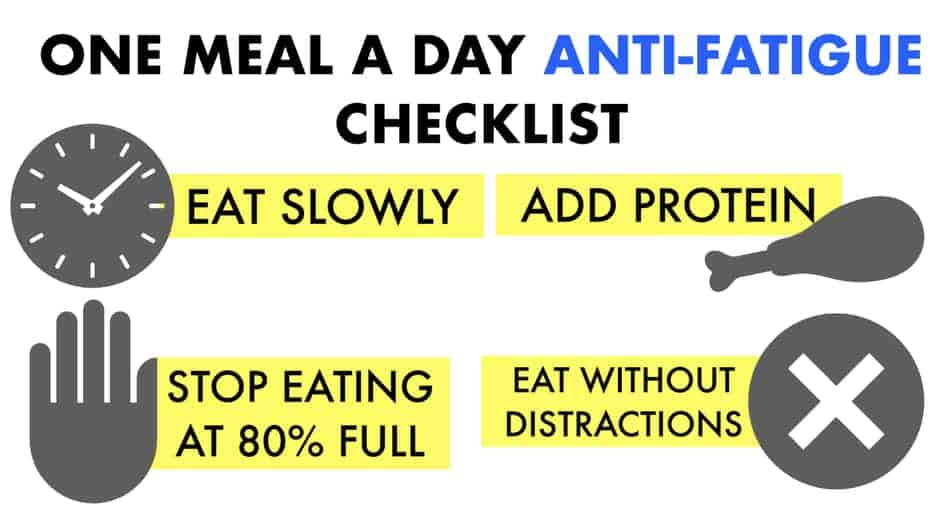
Right now, I invite you to read my article where I explain more in detail about overeating on OMAD and give practical tips on how to stop overeating.
Will I gain weight after OMAD?
In general, you won’t gain weight after OMAD, as long as you create the right habits and learn skills while you’re on the diet.
People who are gaining weight after OMAD just go straight back into their previous habits, without adopting new lifestyle practices.
- Eating slowly
- Eating mindfully
- Eating until you’re satisfied
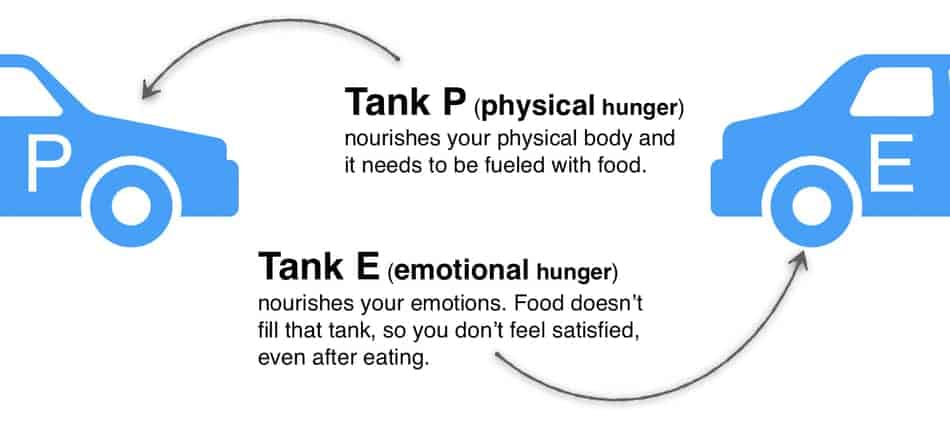
You can check out the list of skills and tips that will help you build the foundation and drive you towards the goals, even after you finished with OMAD.
How to maintain weight after OMAD
Intermittent fasting is a great tool, but most people won’t stick to it forever. And that’s ok because IF is not the only way to maintain weight loss.
Here I wanna share with you 11 tips that are evergreen and will be valid regardless if you ever plan to get back to OMAD or not.
This last guide is about things you can do to help you maintain weight loss after OMAD. In this article, I will talk about things like:
- Food journaling
- Emotional eating
- Self-compassion
- Self-awareness
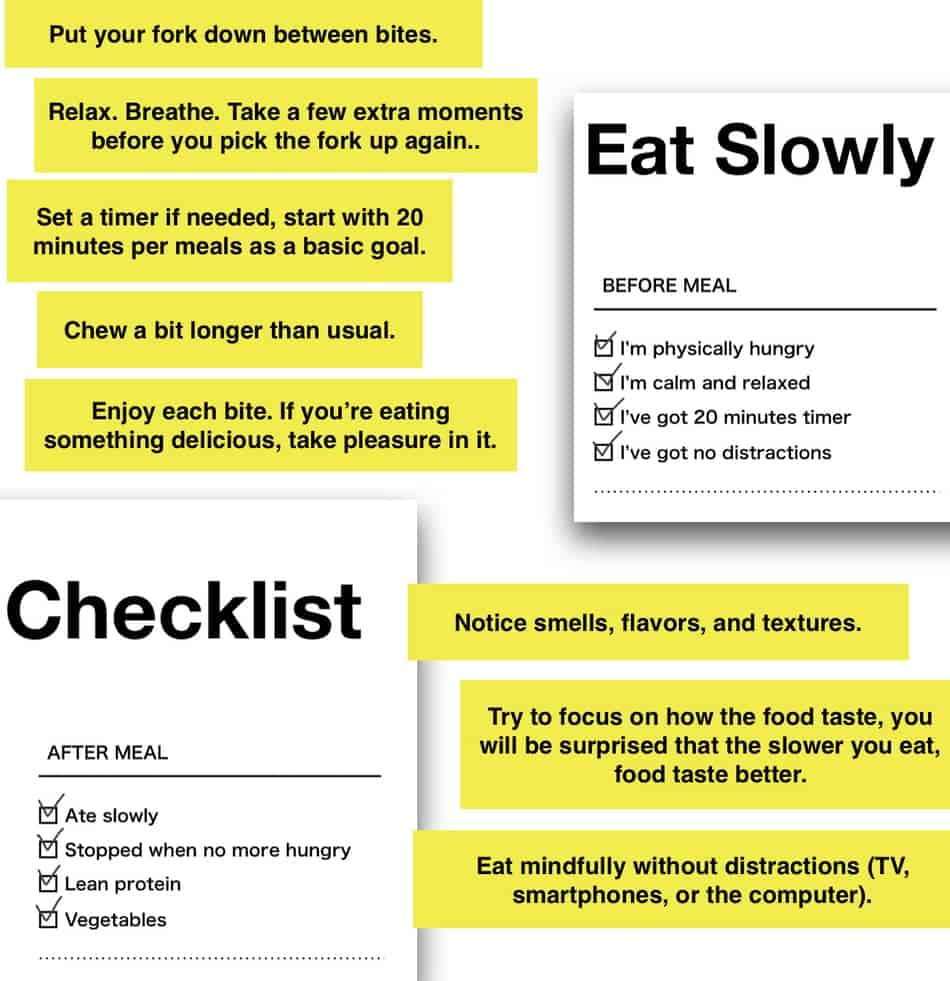
Conclusion
Doing one meal a day can be an effective way to put the body into a caloric deficit which leads to weight loss.
However, this approach can be really hard for some people.
Go ahead and bookmark that page because you may need to come back to it as you go along with the recommendations.
